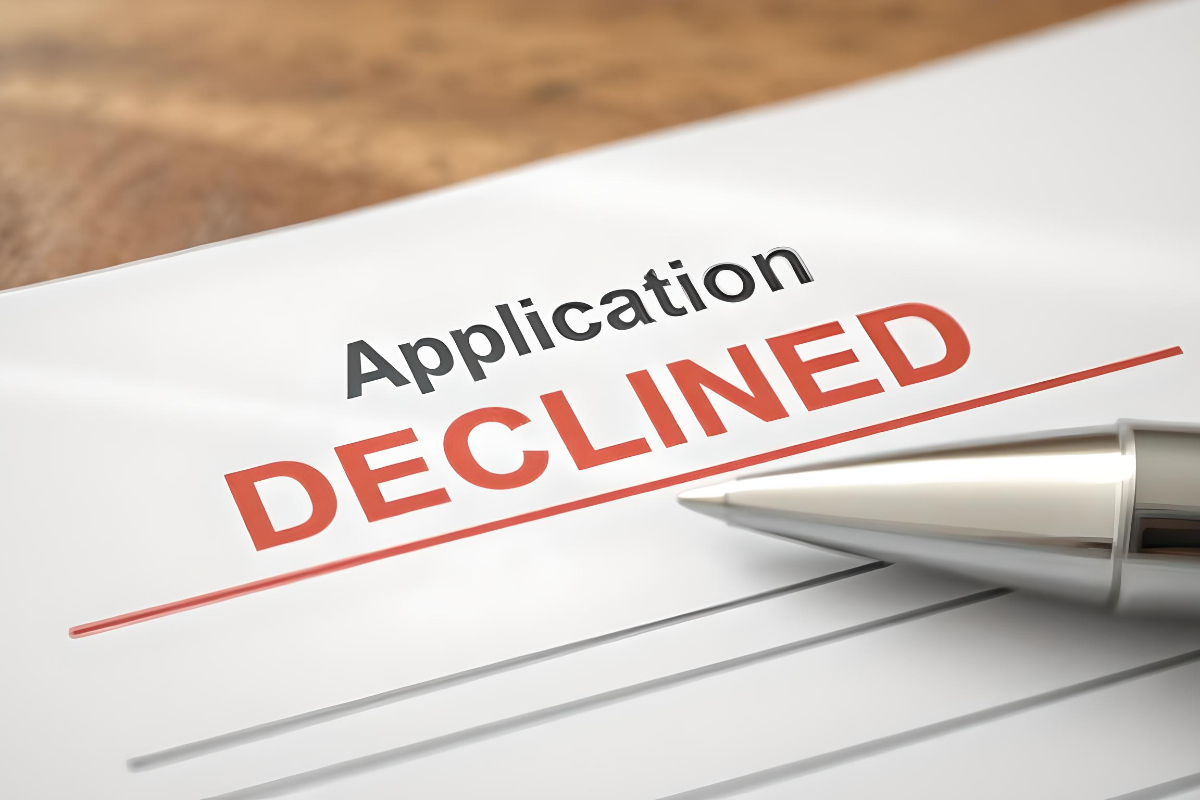
Finding out that your loan application has been declined can be disappointing. But the good news is that lenders are required to inform you of the reasons your loan didn’t get approved. This information can help you understand what steps you should take next to increase your chance of approval in the future.
Here are some common reasons personal loan applications are often declined:
1. Your credit score is low
In most cases, a lender will check your credit score when you’re trying to secure a loan. This score and your credit history suggest to lenders how responsible you are with credit and managing money. If your score is below a certain threshold, this could result in your loan application being declined. In other cases, you may qualify for the loan but might have to pay a higher interest rate because of your credit score.
2. Your debt-to-income ratio is high
Another reason your loan application might be declined is if your debt-to-income ratio is high. Lenders will usually want to see a lower debt-to-income ratio, and too much debt could be a red flag that you may have a hard time repaying the loan. In most cases, you will want to aim for a DTI ratio of 36% or less.
3. The amount you wanted to borrow was too high
Sometimes your loan may be rejected if the amount you wanted to borrow was too high in relation to your income. If the lender decides that you don’t earn enough to meet the minimum repayment requirements, your application will most likely be declined.
4. You didn’t meet the income requirements
Lenders will also want to verify that your income. They’ll usually consider your work income, investments, and any other sources of income that you have. If your income isn’t high enough to repay the requested loan or if it’s too inconsistent, this could result in your loan not being approved.
5. There were other issues
Finally, there are other reasons that a lender may not approve a loan. These might vary from lender to lender. For example, some lenders may consider how much time you’ve been at your current job. Another reason may be an incomplete or inaccurate loan application.
Keep in mind that if your application is declined, your lender is required to provide you with a notice of adverse action that explains what information was used to make the decision and the reasons why the application was not approved. Taking a look at this document can help you to see why your loan was declined and help guide your next steps.
What should you do next? Even if your application was declined, you still have options. You can take steps to improve your eligibility. Working on your credit score or trying to pay down debt are two long-term strategies that may help you qualify for a future loan.
Notice: Information provided in this article is for information purposes only and does not necessarily reflect the views of payspacemagazine.com/ or its employees. Please be sure to consult your financial advisor about your financial circumstances and options. This site may receive compensation from advertisers for links to third-party websites.









